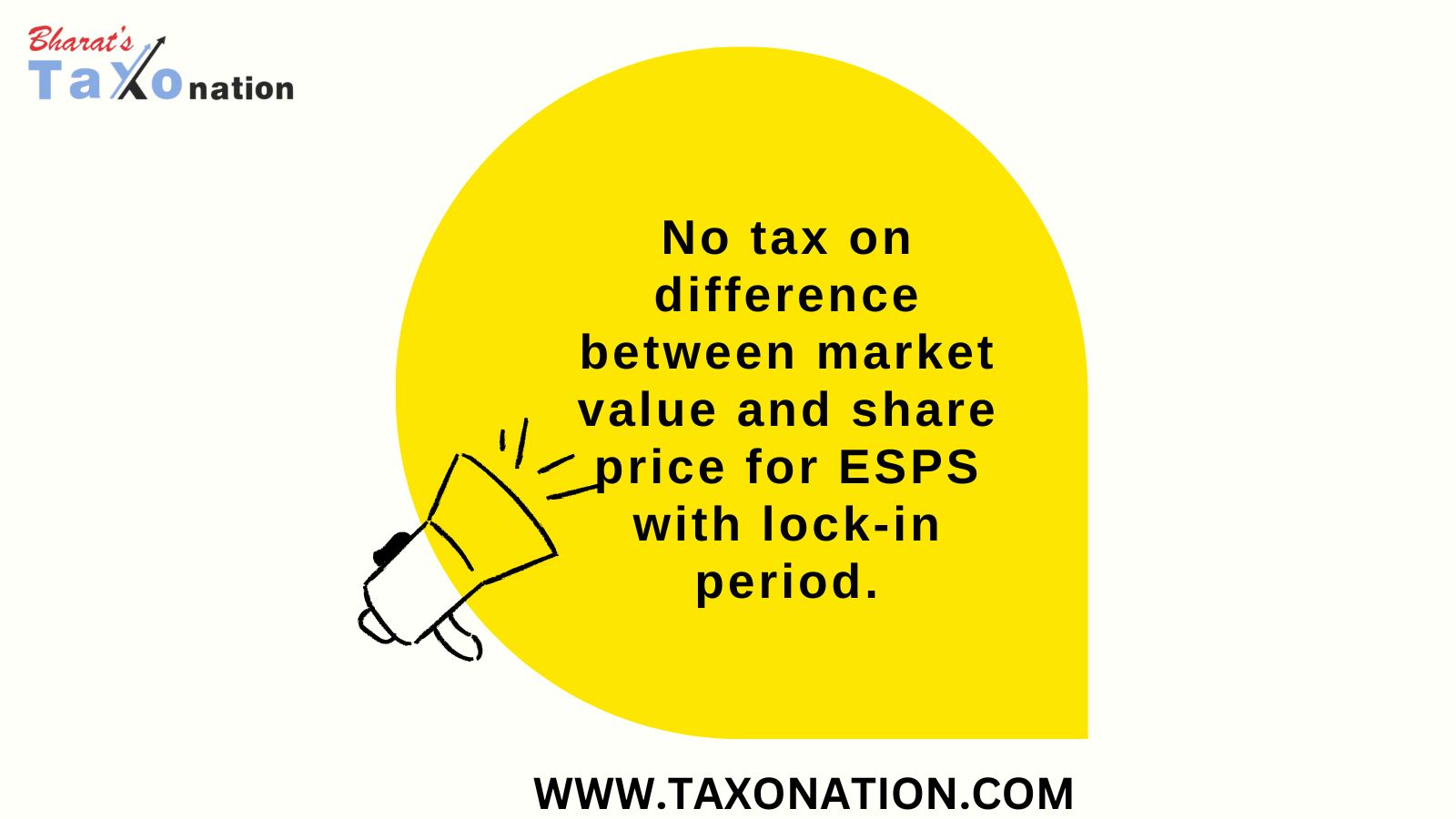
The case in question revolves around the assessment of the taxability of shares allotted to the assessee under an Employee Stock Purchase Scheme (ESPS). The core issue concerns the fair market value (FMV) of these shares, especially when subjected to a lock-in period, and how this impacts the determination of perquisite value for taxation purposes under the Income Tax Act, 1961.
Background
The assessee, under an ESPS, was allotted 11,50,500 shares at INR 15 per share. These shares were subjected to a lock-in period, with 25% locked for 12 months and the remaining 75% for 18 months. The employer, to ensure compliance with tax obligations, obtained a Valuation Report from M/s Ernst and Young, which valued the shares at INR 22.50 each. However, the market price during the relevant period was significantly higher at INR 49.45 per share. The Assessing Officer (AO) taxed the difference between the market price and the issue price as a perquisite, resulting in an addition of INR 3,96,34,725 to the assessee's income.
Tribunal and CIT(A) Findings
Upon appeal, the Commissioner of Income Tax (Appeals) [CIT(A)] took a different stance, acknowledging that the lock-in period affected the marketability of the shares and thus reduced the FMV to INR 22.50 per share, as per the employer’s Valuation Report. This valuation was further challenged, leading to an appeal before the Income Tax Appellate Tribunal (ITAT), which upheld the CIT(A)'s decision.
Legal Questions
The appeals raised two significant legal questions:
Court's Analysis and Decision
Justice Yashwant Varma, in his analysis, recognized the inherent issue of valuing shares under a lock-in period. The key argument was that the FMV could not exceed the face value due to the restriction on tradeability imposed by the lock-in period. The court referred to several precedents, notably Infosys Technologies Ltd. v. Commissioner of Income Tax and Deputy Commissioner of Gift Tax v. BPL Ltd., which emphasized that shares under a lock-in period have no realizable market value during that period and thus should not be taxed based on the prevailing market price.
Justice Varma underscored that the Income Tax Act does not contemplate taxation on notional income, aligning with the Supreme Court's stance that real income, rather than hypothetical income, should be the basis for taxation. The valuation report prepared by Ernst and Young, though considered by the employer for withholding tax purposes, was deemed inappropriate for determining FMV for tax liability.
Conclusion
The court ultimately held that the FMV should not exceed the face value of the shares (INR 15 per share). The addition of INR 86,28,750 as a perquisite value was erroneous, and thus the assessee's appeal was allowed, and the Commissioner's appeal was dismissed. This decision reaffirms the principle that taxation must be grounded in the reality of the income or benefit received, not on speculative or notional values.
Income Tax Case Law Ravi Kumar Sinha Versus Commissioner of Income-tax
Citation-2024 TAXONATION 318 (DELHI)
CLICK HERE TO READ FULL CASE LAW/DOWNLOAD FROM ABOVE GIVEN PDF OPTION
OR
SUBSCRIBE INCOME TAX & GST E-LIBRARY (INDIA'S HIGHEST GST CASE LAW DATA)
FOR MORE UPDATE ON GST/ IT JOIN OUR FREE WHATSAPP GROUP BY CLICKING ON THIS LINK https://chat.whatsapp.com/C8VB6F6VHme3A061UDQKhj
Comment: